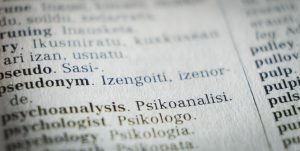Artificial Intelligence Meets Translating, Interpreting
 Good news if you happen to be an athlete, bus mechanic, or short order cook. Those professions are judged to be least affected as artificial intelligence becomes, well, more intelligent, according to a paper published in March by University of Pennsylvania and Open AI researchers, “An Early Look at the Labor Market Impact Potential of Large Language Models.”
Good news if you happen to be an athlete, bus mechanic, or short order cook. Those professions are judged to be least affected as artificial intelligence becomes, well, more intelligent, according to a paper published in March by University of Pennsylvania and Open AI researchers, “An Early Look at the Labor Market Impact Potential of Large Language Models.”
What’s good for short order cooks could shape up poorly for translators and interpreters. The researchers determined whether AI apps could reduce by at least 50 percent the time required for a human to complete a work task. Translators and interpreters topped the list of AI endangered professions, with more than 75 percent of their job functions vulnerable to AI advances.
For interpreters and translators, the news isn’t all dire. The paper’s authors explain that their work won’t necessarily be fully automated and eliminated. AI-powered software, however, may be able to “save workers a significant amount of time completing a large share of their tasks.”
See a quick rundown of most affected professions on the slator.com website, here.

